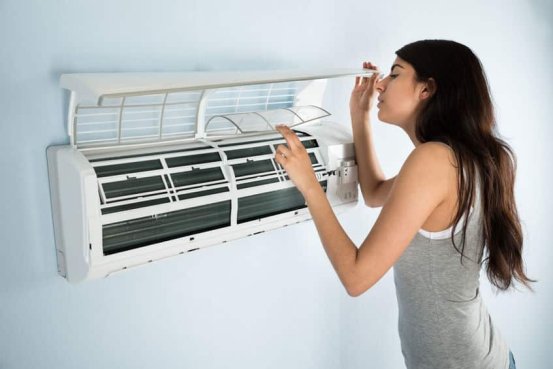Why HVAC and Air Conditioner Maintenance Is Essential in the U.S.
Across the United States, reliable air conditioning isn’t just about comfort—it’s about health, safety, and energy savings. From humid Florida summers to the dry desert heat of Arizona, households and businesses depend heavily on their AC systems. Yet many owners neglect routine maintenance, only to face sudden breakdowns during the hottest weeks of the year. Preventive care not only avoids emergencies but also protects your investment in the long run.
Across the United States, reliable air conditioning isn’t just about comfort—it’s about health, safety, and energy savings. From humid Florida summers to the dry desert heat of Arizona, households and businesses depend heavily on their AC systems. Yet many owners neglect routine maintenance, only to face sudden breakdowns during the hottest weeks of the year. Preventive care not only avoids emergencies but also protects your investment in the long run.

The Core Benefits of Routine AC Maintenance
- Improved Efficiency and Lower Bills
Dust, pollen, and dirt inside the unit force your system to work harder. Professional servicing keeps components clean and well-calibrated, often reducing energy usage by 15–20%. - Longer Equipment Life
Replacing an HVAC unit in the U.S. can run anywhere from $5,000 to $12,000. Regular tune-ups protect expensive parts like compressors, coils, and motors, helping systems last years longer. - Cleaner, Healthier Air
Without proper care, allergens such as mold spores, pet dander, and dust can circulate through ducts. Filter changes and coil cleaning improve indoor air quality, supporting a healthier living environment. - Lower Repair Costs
Catching issues early—whether a small refrigerant leak or a worn belt—prevents them from escalating into major breakdowns, saving hundreds or even thousands in emergency repairs.
What’s Included in a Standard U.S. AC Service
A reputable HVAC contractor typically covers a full checklist, including:
Checking and calibrating thermostats
Cleaning or replacing filters
Inspecting refrigerant levels
Washing condenser and evaporator coils
Tightening electrical connections
Lubricating moving parts
Verifying condensate drainage
Measuring airflow to spot duct problems
Many U.S. companies also sell seasonal service agreements, which offer perks like priority scheduling, discounted repairs, and extended warranties.
How Often Should You Schedule Maintenance?
Once a year is enough for most households—ideally in spring before heavy summer use.
Twice a year may be needed in areas with extreme dust or heat (Texas, Arizona, Nevada), homes with pets, systems over 10 years old, or if someone in the family has allergies or asthma.
Warning Signs Your AC Needs Immediate Attention
Don’t wait for your next service appointment if you notice:
Weak or uneven airflow
Warm air blowing in cooling mode
Odd sounds (banging, squealing, grinding)
Musty or foul odors
Frequent cycling on and off
Sudden spikes in energy bills
These may signal refrigerant issues, motor problems, or electrical faults that require urgent attention.
Costs of Professional Maintenance
Single service visits: $80–$200 on average.
Annual maintenance contracts: $150–$300 (often including two visits plus emergency discounts).
Price varies depending on region, system type (central AC, ductless, heat pump), and whether replacement parts are required.
Choosing a Trusted HVAC Provider
With thousands of contractors across the U.S., the best providers typically offer:
NATE or EPA-certified technicians
Proper licensing and insurance
Clear, written service checklists and warranties
High customer ratings (Google, Yelp, Angi)
24/7 emergency service availability
Homeowner Tips Between Professional Visits
While expert care is crucial, homeowners can support system health by:
Replacing filters every 1–3 months
Keeping outdoor units free of debris (leaves, dirt, grass)
Inspecting vents for dust or blockages
Setting thermostats reasonably to avoid overworking the system
Final Takeaway
Air conditioning maintenance in the U.S. is more than a seasonal task—it’s a strategy to ensure comfort, lower costs, and avoid disruptive failures. With proper upkeep, you’ll enjoy cleaner air, fewer repairs, and reduced utility bills. Whether through annual servicing or a full maintenance contract, working with a certified HVAC professional keeps your system running smoothly—so you stay cool no matter how high the summer temperatures climb.

